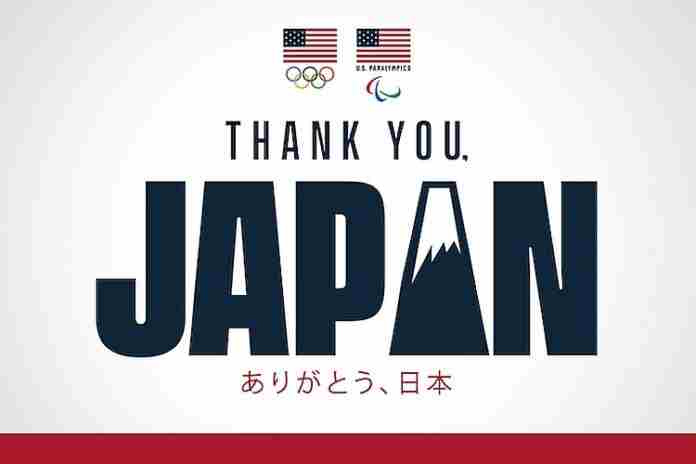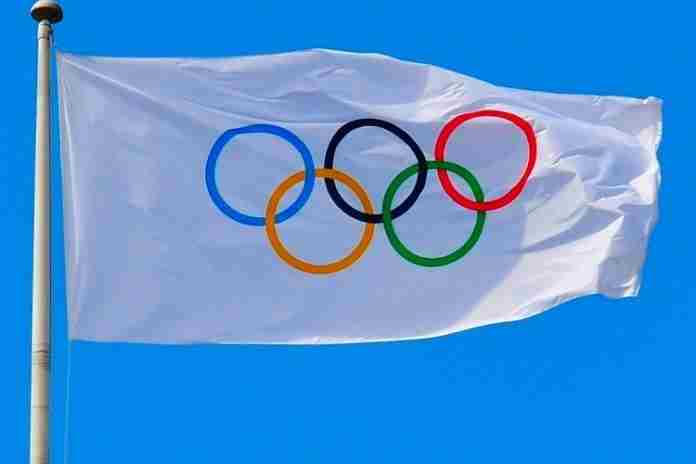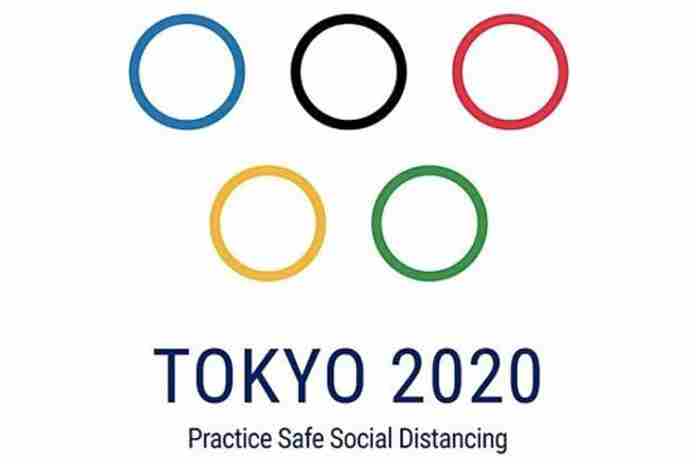I beg your pardon
I never promised you a rose garden
Along with the sunshine
There’s gotta be a little rain some time
~ from the 1970 Grammy Award-winning “Rose Garden”
by Lynn Anderson (1947-2015)
With the Tokyo organizers now working to determine, with the International Olympic Committee, when a re-scheduled Games of the XXXII Olympiad would be held, it’s worth considering what we learned during the process.
The national news agency in Japan, Kyodo, reported in a Saturday post that “a time frame from July 23, 2021 to Aug. 8 has emerged as a strong candidate. … Holding the event later rather than earlier [in the spring] would allow more margin for error and give the coronavirus pandemic more time to run its course.”
This would be on the same date footprint as for 2020, when the Games were slated for 24 July to 7 August. Now to the takeaways:
[1] Postponement will cost money, and this could have an impact on the Games
There can be no doubt that the current $12.6 billion budget for the Tokyo Games is going to be insufficient to put on the event in 2021. Said organizing committee chief executive Toshiro Muto:
“We need to assess whether [the venues] will be available when we need them next year. There will be additional costs that come with this – and we expect it will probably be massive.
“We are dealing with the postponement of the Games, which has never happened in history. The task is daunting.”
The organizers and the Japanese government will get the job done; after all, they could have walked away from the project altogether. But it will be interesting to see how the costs are managed, especially with regard to staff and to items which were planned, but not yet ordered or delivered.
Two groups to watch in this area will be the National Olympic Committees and International Federations. The NOCs, which sends the athletes to the Games, will be looking for refunds and re-bookings of pre-Games training camps and hospitality arrangements with groups other than the organizing committee. The IFs were already on record in May of 2019 as being unhappy with Tokyo’s budget cuts from its original plan. The then-chief executive of World Sailing, Andy Hunt (GBR), said “I don’t have any guilt on my part that I’m asking for things that aren’t needed” (he has since left World Sailing).
Regardless of the financial situation for Tokyo, the federations are likely to be quite intolerant about any cuts for 2021. The International Judo Federation’s Relations Manager, Larissa Kiss (HUN) complained last year, “We do not want to be as we were in Rio, where the Look was quite cheap.”
Easy to complain when it’s not your money at stake.
[2] Athletes are on the razor’s edge already, so hard to expect much understanding from them
It was easy to appreciate the frustration from athletes in countries in which the coronavirus was spreading. On 22 March (Sunday), when the IOC announced that a change in the dates of the Games was possible and that a decision would be coming within four weeks, British sprint star Dina Asher-Smith posted on Twitter:
“So wait… does this mean that athletes face up to another FOUR weeks of finding ways to fit in training – whilst potentially putting ourselves, coaches, support staff and loved ones at risk just to find out they were going to be postponed anyway!!!”
The Games were postponed a couple of days later, but where Asher-Smith thanks the British National Health Service for their efforts against the coronavirus, not a word of thanks to the Tokyo organizers for agreeing to spend billions to put on the Games in 2021.
And not much on this from other athletes, or from the NOCs or IFs, with a couple of notable exceptions. The U.S. Olympic & Paralympic Committee, which launched a widely-ignored “Thank You, Japan” initiative in 2019, sent a letter from chief executive Sarah Hirshland to all American athletes, and which was also posted publicly, starting with:
“Despite the feeling of eventuality that so many of us have felt in the lead up to this moment – my heart breaks for you, your fellow athletes around the world, our friends at Tokyo 2020, the people of Japan, and all who are impacted by this global pandemic and the decision to postpone the Tokyo Games 2020.”
The Australian Olympic Committee, which four days earlier said it was impossible to attend the Games in 2020, posted a statement from chief executive Matt Carroll that included:
“But I have no doubt that when the world moves past these very difficult times, the Tokyo Olympic Games will provide an opportunity for the world to reconnect in a spirit of unity and hope. Japan is up to the task and they will do a great job.”
Most of the other NOCs and IFs made perfunctory references to “supporting” Tokyo 2020.
That’s not enough.
It’s pretty common to see “Thank you [name of city]” shirts or signs from athletes when they tumble into the Closing Ceremony of any Games. For 2021, the IOC should require a “Thank You Tokyo” patch, sash or sign on every person who marches in the Opening Ceremony in 2021.
The same should be done in the Olympic Village, during the Welcome Ceremony for each National Olympic Committee. Let’s see how many NOCs care enough to recognize the sacrifice being made on their behalf by the people of Japan and Tokyo.
[3] The whining about the IOC not being athlete-centric is laughable
There was plenty of commentary from athletes, officials and news media about “how long” it took the IOC and the Japanese to postpone the Games, an “enormous” stretch of 13 days from the World Health Organization declared a worldwide pandemic.
The predictable call was, of course, for everyone involved in the IOC to resign and put in “athletes” who would have done better. This is actually pretty funny to anyone who has watched the IOC morph over the decades. In fact, of the 15 members of the decision-making IOC Executive Board, six are former Olympians themselves and three more were international-class competitors in their sports:
President (1 of 1):
● Thomas Bach (GER) ~ Olympian/Fencing 1976
Vice Presidents (1 of 4):
● Anita DeFrantz (USA) ~ Olympian/Rowing 1976
Members (7 of 10):
● Sergey Bubka (UKR) ~ Olympian/Athletics 1988-92-96-2000
● Kirsty Coventry (ZIM) ~ Olympian/Swimming 2000-04-08-12-16
● Nicole Hoevertsz (ARU) ~ Olympian/Artistic Swimming 1984
● Denis Oswald (SUI) ~ Olympian/Rowing 1968-72-76
● Ivo Ferriani (ITA) ~ International competitor/Bobsled
● Ser Miang Ng (SGP) ~ International competitor/Sailing
● Dr. Robin Mitchell (FIJ) ~ International competitor/Athletics and Field Hockey
For those who have followed the IOC for a long time, this kind of ex-athlete-dominated Executive Board – nine of 15 members – was unthinkable until recent years. It’s also worth noting that both Mitchell and Turkey’s Ugur Erdener (a Vice President) are medical doctors. But that doesn’t mean much to the activists, who simply want their own way. Pathetic.
[4] A 2021 Games could create a new look for the international calendar
Despite the silly statement of at least one International Federation executive that the move to 2021 for the Games won’t change their calendar of events next year, the reality could herald a change for the future.
If the Tokyo Games are held on essentially the same dates as scheduled for 2020, it will force both FINA and World Athletics to move their World Championships from 2021 to 2022. By doing so, it will set up World Championships in consecutive years for both for the first time ever.
Could this become permanent?
It’s possible, as both will be able to judge the worldwide reception to having such events each year instead of every other year. For both federations, it could usher in the possibility of holding their Worlds in all three non-Olympic years. We’ll know by the end of 2023.
[5] Winners and losers
The move to 2021 will make a significant difference in the competitions, as well as for the hosts. Some who might have made the Games in 2020 won’t make the trip and youngsters who needed more time will have it, in 2021. At this point:
Winners:
● Athletes returning from injury or maternity, such as two 400 m stars: defending Olympic champ Wayde van Niekirk (RSA), who hasn’t been himself since 2017, and American star Allyson Felix, the most decorated female track & field Olympian in history.
Felix is especially worth watching. Her comeback from maternity was already one of the standout stories of the 2020 Games, but her chances of even making the U.S. team were unclear at best. But with a full year to train again, she could be dangerous and could be one of the darlings of a 2021 Games.
South Africa’s Caster Semenya has said she wants to try the 200 m, since that event will not require her to lower her testosterone levels to comport with World Athletics rules on hyperandrogenism. A full year of speedwork would help her at least contend for a spot in the Games and from there, who knows?
● Beijing, the host of the 2022 Olympic Winter Games, is also a winner. International news media can be counted on for a steady drumbeat of stories about China as an inappropriate host due to its human-rights policies. That storyline will disappear for a full year with Tokyo 2021 coming on, and pick up only after the Closing Ceremony next summer.
Losers:
● Russia. Where the Russian strategy to fight the four-year sanction by the World Anti-Doping Agency was to delay its hearing before the Court of Arbitration for Sport long enough to allow its team to compete in Tokyo, that’s gone now. The decision will come in time for Tokyo and Russia’s outlook is not promising.
● Anti-doping agencies: There is rampant fear that during the pandemic, there are many athletes taking advantage of relaxed enforcement by national anti-doping organizations. This will require a significantly stepped-up testing and enforcement regimen in 2021.
● The IOC, which will have to work overtime to see the Tokyo Games to completion, then come back with Winter Games in Beijing about seven months later and then the Youth Olympic Games in Dakar (SEN) in mid-2022.
The transfer of plans from 2020 to 2021 will be exceptionally challenging, starting with money to pay everyone involved for another year … without any new revenue to cover those costs. Here’s hoping there will be more roses than thorns in the extra year ahead.
Rich Perelman
Editor
You can receive our exclusive TSX Report by e-mail by clicking here. You can also refer a friend by clicking here.

























